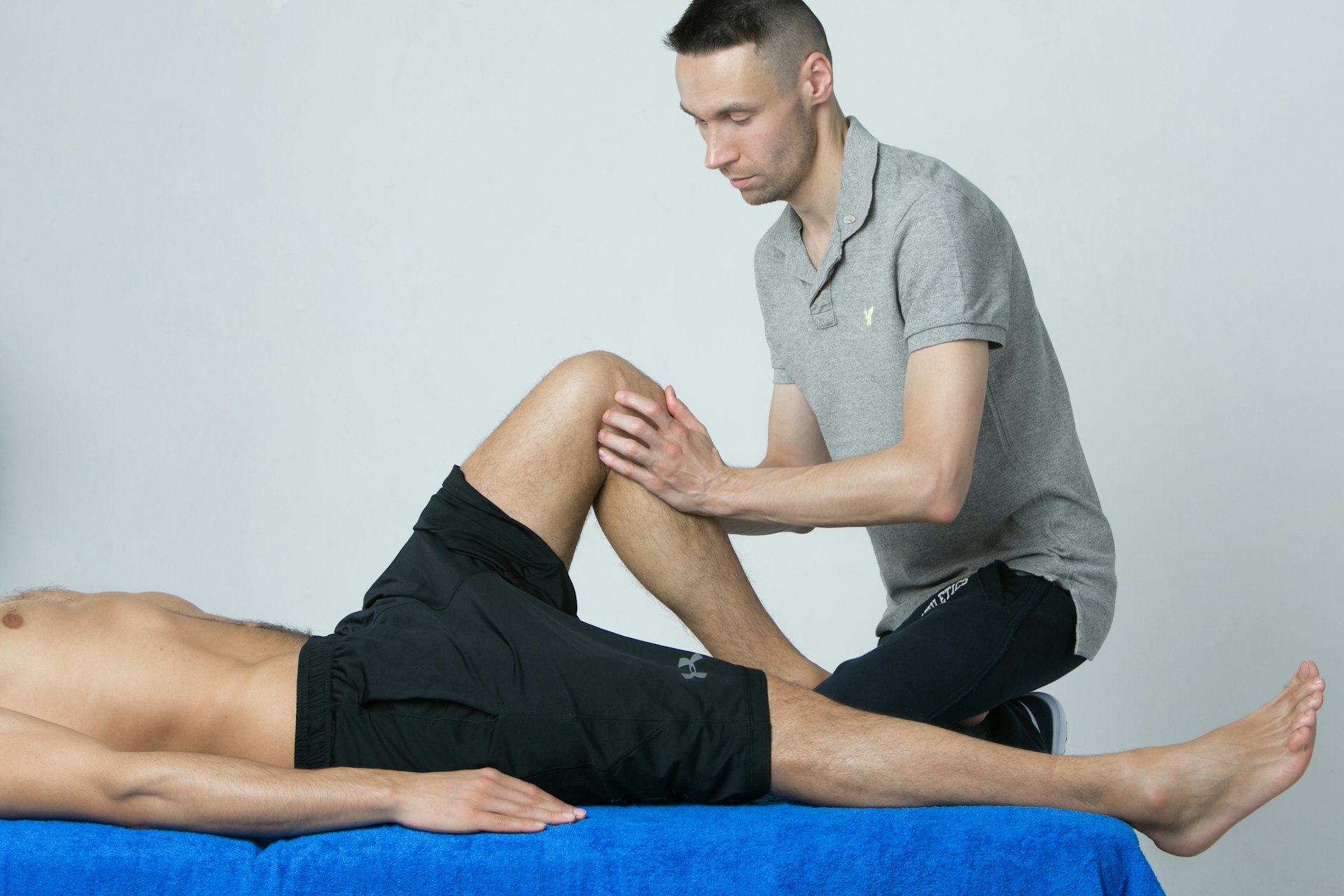Unlocking Wellness Through Breath Awareness: A Practical Guide to Health and Emotional Balance

Photo by Leo Sokolovsky on Unsplash
Introduction: The Overlooked Power of Breath Awareness for Wellness
In the pursuit of overall wellness, many people focus on nutrition, exercise, and sleep. Yet one of the most accessible and powerful tools for improving health and emotional balance is often overlooked: breath awareness . Recent research and centuries-old practices demonstrate that conscious breathing supports stress reduction, mood enhancement, physical health, and cognitive function. [1] This guide explores the science behind breath awareness, practical techniques you can implement immediately, and pathways for accessing breathwork resources.

Photo by Anil Sharma on Unsplash
Understanding Breath Awareness: What Is It and Why Does It Matter?
Breath awareness simply means paying attention to your breathing patterns and consciously regulating them. Unlike automatic breathing, conscious breathwork engages the mind and body, activating neural pathways that support relaxation, emotional regulation, and improved physiology. [1] When practiced regularly, breath awareness can:
- Reduce stress and anxiety by activating the body’s relaxation response
- Improve focus and concentration through mindful attention [3]
- Support emotional regulation and resilience in challenging situations
- Enhance sleep quality and physical well-being
Multiple studies confirm that even brief daily breathwork can result in measurable improvements in mood, reduction in anxiety, and increased positive affect. [2]
Core Benefits of Breath Awareness for Wellness
1. Stress Reduction and Emotional Regulation
One of the most immediate and impactful benefits is stress management. Slow, deep breathing calms the nervous system, lowers cortisol levels, and encourages emotional stability. [1] For example, consciously slowing your breath during a stressful moment can prevent escalation of anxiety or anger.
2. Mood Enhancement and Mental Well-Being
Structured breathwork has been shown to enhance mood, particularly when compared to passive mindfulness meditation. Practices like
cyclic sighing
and
box breathing
lead to greater improvements in positive affect and reduction in negative emotions.
[2]
Many individuals report a sense of calm and clarity after just a few minutes of focused breathwork.
3. Improved Sleep Quality
Deep, rhythmic breathing before bedtime can relax the body and mind, making it easier to fall asleep and stay asleep. [1] Regular breath awareness routines may support better sleep hygiene and reduce insomnia symptoms.
4. Physical Health Benefits
Breathwork is linked to improved lung function, increased oxygen delivery, and enhanced detoxification. [1] Some studies suggest deep breathing helps manage blood pressure, support heart rate variability, and even boost immune function. [5] For individuals with chronic conditions like asthma or COPD, breathwork may offer supplementary benefits alongside traditional treatment. [4]
5. Enhanced Cognitive Function
Focused breath awareness increases oxygen flow to the brain, supporting concentration, memory, and executive function. [3] Mindfulness breathing routines are frequently recommended in educational and workplace settings to boost productivity and mental clarity.
Practical Breathwork Techniques and Step-by-Step Guidance
Breathwork is accessible, free, and requires no special equipment. Below are several evidence-based techniques:
Box Breathing
Inhale for 4 seconds, hold for 4 seconds, exhale for 4 seconds, pause for 4 seconds. Repeat for several cycles. This method is favored by athletes and military personnel for rapid stress reduction. [3]
Implementation Steps:
- Find a comfortable seated position with a straight spine.
- Close your eyes or soften your gaze.
- Begin the cycle: inhale, hold, exhale, pause – each for 4 seconds.
- Repeat for 2-5 minutes.
Example:
Use box breathing before important meetings or stressful events to improve focus and calm.
4-7-8 Breathing
Developed by Dr. Andrew Weil, this technique involves inhaling for 4 seconds, holding for 7 seconds, and exhaling for 8 seconds. It is especially effective for relaxation and sleep. [4]
Implementation Steps:
- Sit or lie down comfortably.
- Inhale gently through the nose for 4 seconds.
- Hold your breath for 7 seconds.
- Exhale slowly through the mouth for 8 seconds.
- Repeat for 4 cycles.
Example:
Try 4-7-8 breathing before bedtime to ease into sleep.
Diaphragmatic Breathing
Breathe deeply from the diaphragm (rather than the chest), allowing the abdomen to rise and fall. This method increases oxygen intake and supports relaxation. [3]
Implementation Steps:
- Place one hand on your chest and one on your abdomen.
- Breathe in slowly, feeling your abdomen rise.
- Exhale steadily, noticing your abdomen fall.
- Practice for 5-10 minutes daily.
Example:
Use diaphragmatic breathing during meditation or yoga for enhanced relaxation.
Accessing Breathwork Resources and Support
Many organizations and healthcare providers offer breathwork guidance. If you’re interested in formal instruction or group sessions:
- Contact integrative medicine centers or certified breathwork coaches in your area.
- Search for “breathwork classes” or “mindfulness workshops” through local wellness organizations, hospitals, and community centers.
- Consult with your primary care provider or mental health professional for recommendations tailored to your needs.
- Explore free instructional resources from reputable health organizations or academic institutions. For example, the Andrew Weil Center for Integrative Medicine provides curriculum and resources on breathwork techniques. [4]
If you experience persistent anxiety, sleep issues, or chronic health conditions, breathwork may be a supportive addition to your existing care plan. Always consult with a licensed professional before making significant changes to your health regimen.
Challenges and Solutions in Breathwork Practice
Common Challenges:
- Difficulty focusing or maintaining regular practice
- Initial discomfort with slow breathing or breath holding
- Lack of access to guided instruction or community support
Solutions and Alternatives:
- Start with brief sessions (2-5 minutes) and gradually increase duration as comfort grows.
- Combine breathwork with mindful movement practices like yoga or tai chi for greater engagement.
- Utilize audio guides or mobile apps from trusted health organizations to support consistency.
- Join virtual or in-person breathwork communities for accountability and shared learning.
Key Takeaways and Next Steps
Breath awareness offers a scientifically backed approach to improving wellness, accessible to individuals of all ages and health backgrounds. By dedicating a few minutes each day to conscious breathing, you can unlock immediate and lasting benefits for your mind and body. For further support, consult your healthcare provider, seek out established wellness centers, and explore reputable online resources dedicated to breathwork and mindfulness.
References
- [1] Duke Health (2023). The Power of Breath: The Surprising Benefits of Conscious Breathing.
- [2] Balban et al. (2023). Brief structured respiration practices enhance mood and reduce anxiety: Randomized controlled study.
- [3] Lone Star Neurology (2023). How Breathing Techniques Influence Brain Function and Nerve Health.
- [4] Andrew Weil Center for Integrative Medicine (2022). Just Breathe: Using Breathwork for Wellbeing.
- [5] Current Wellness Raleigh (2023). 7 Benefits of Breathwork.
MORE FROM hotondeals.com













